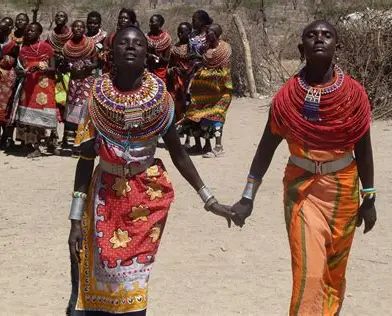
In the African country of Mauritania transforms the stigma of divorce into a celebration of freedom and opportunity, offering a unique cultural perspective that empowers women and challenges traditional norms.
In many parts of Africa divorce often carries a heavy stigma, leaving women vulnerable and disempowered. But imagine a place where the end of a marriage is not just accepted, but celebrated as a joyous declaration of newfound freedom and opportunity.
Such a place exists in the North African nation of Mauritania. Here, a unique cultural phenomenon, often described as a “divorce market,” showcases a matriarchal Moorish culture where women enjoy remarkable autonomy and remarriage is not just encouraged but actively celebrated.
In Mauritania, divorce is common, with some estimates suggesting that nearly a third of all marriages dissolve. What sets this country apart is the celebratory atmosphere surrounding a woman’s divorce.
Instead of shame or sorrow, women often find themselves at the centre of elaborate festivities.
“Divorce parties,” far from being sombre affairs, are vibrant gatherings filled with music, dance and feasts, where the woman, surrounded by friends and family, rejoices in her newfound freedom.
These events are not just social gatherings; they serve as public declarations of a woman’s availability for remarriage, openly inviting new prospects.
Here, women hold significant social and economic autonomy and their experience from previous marriages is highly valued. A woman with a history of marriage is often seen as a more desirable prospect than a young, inexperienced bride.
This empowers women to initiate divorce if their needs are not being met, actively challenging traditional narratives that often portray women as passive participants in their marriages.
Mauritania’s legal system, governed by Islamic law, includes a crucial provision known as ‘khul’. This allows a wife to seek divorce by compensating her husband, typically by returning the bride price. This legal framework provides women with a significant degree of power in ending their marriages, a rare and progressive feature in many Muslim-majority countries.
However, this distinctive system is not without its challenges. The high divorce rate inevitably raises questions about the potential impact on children and overall family stability.
Yet, despite these concerns, Mauritania’s “divorce market” stands out as a powerful example of how cultural practices can redefine social norms and empower individuals, particularly women, in ways that defy conventional expectations.
This unique Mauritanian approach could offer valuable insights for other African countries grappling with the complexities of traditional marriage and divorce.
Encouraging a more supportive and celebratory environment for women navigating divorce could significantly reduce stigma and open new pathways for personal growth and remarriage across Africa.
For many Mauritanian women, the end of a marriage is not merely a conclusion, but a celebration of new beginnings and the promise of a brighter future.
- A Tell Media report / By Agencies








